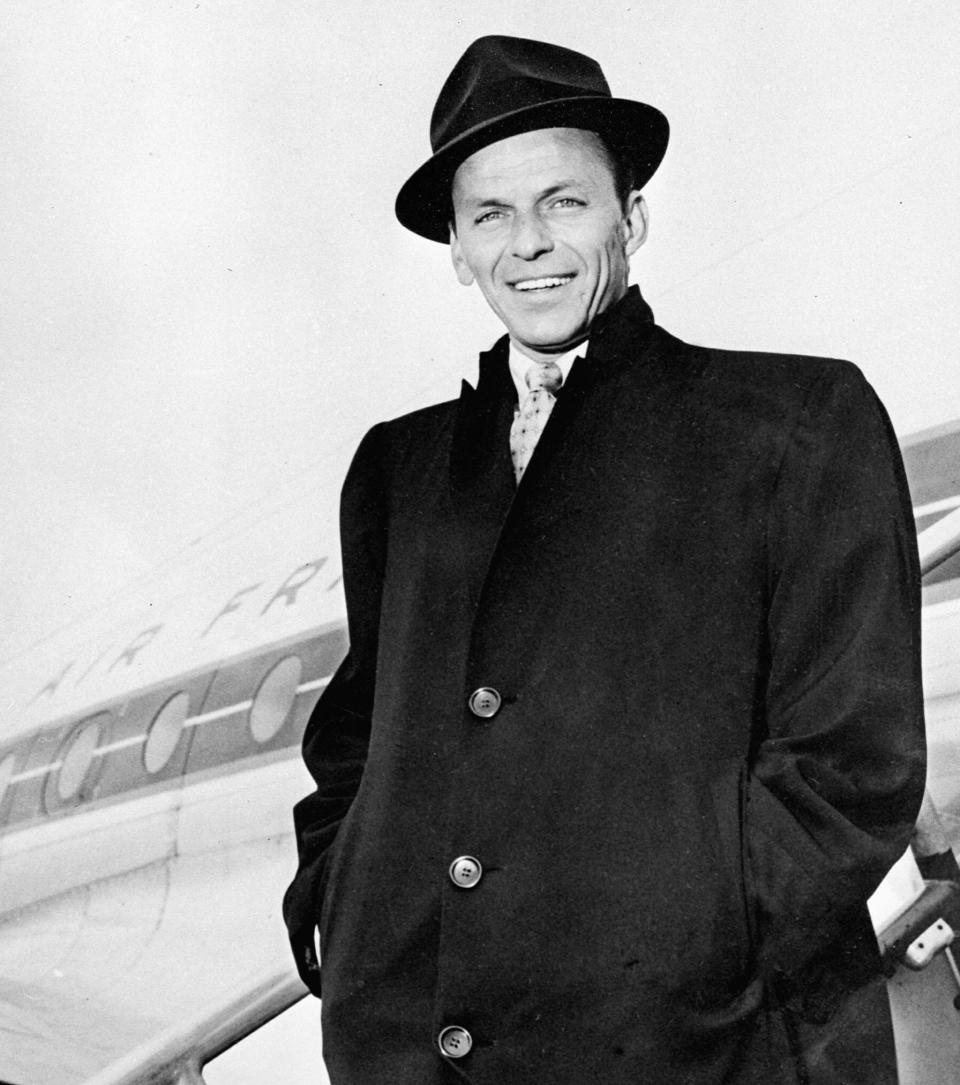20 years after Frank Sinatra's death, millennials are still channeling his hipster vibe
Frank Sinatra, universally considered one of America’s most important artists of the 20th century, died 20 years ago today (May 14, 1998). As one of the biggest stars (in both music and film) to emerge in the post-World War II years, Sinatra had a firm place in history established well before his death, and his legacy was crystallized at the time of his passing.
However, perhaps a more interesting accolade is the fact that Sinatra, a man two decades gone at this point, has a firm foundation in a generation he never knew during his lifetime, and that influence is continuing to grow even 20 years after his death.

Sinatra died at a time when the internet was just starting its burgeoning cultural hold. Streaming music as we know it did not exist, and would not be officially tabulated by sales charts for another 16 years. Facebook, let alone the entire phenomenon of social media, would not emerge for another five years.The Voice’s Blake Shelton had just signed his first record deal as an unknown country artist from Oklahoma with a mullet.
Today, the mullet-less Shelton oversees a stream of Rat Pack revivalists on The Voice, with the latest being this season’s (eliminated) 21-year-old Austin Giorgio, who even managed to bring a retro/glam feel to a Justin Bieber cover. Sinatra has 5.6 million followers on a posthumous Facebook account, 50,000 on his official Instagram page, and a host of tribute accounts on YouTube. He averages 4.6 million Spotify listeners monthly and has his own Sirius XM channel.
It’s easy to dismiss these stats as simply something to take for granted in the digital age — which makes it easy for fans to dig into anything remotely of interest — but the fact remains that Sinatra has an uncanny grip beyond the grave on the millennial generation.
It’s also easy to try to explain this by calling up Sinatra’s unique swaggering style — which is strong enough to translate over genres and various personal tastes — but again, looking at the entire picture, there are very few era peers who have the reach in the current crop of young adults that he does.
Elvis Presley? Yes. Johnny Cash? Yes, to some degree.
But how about Ricky Nelson? Jerry Lee Lewis? Chuck Berry? Any of the other Rat Pack members? The answer is, without taking anything away from what these great artists have done, no. Not one of them has the standalone style package.
We’d have to move into the ’60s to approach the appropriate equivalent, and even that would be on a lofty and scarce level, weeding down to such absolutely encompassing idols as John Lennon (Mick Jagger probably doesn’t even cut it).
Artists such as Tony Bennett have managed to retain younger listeners, but have leaned on the approach of collaborating with younger and white-hot talent such as Lady Gaga. Although his Duets albums were wildly popular, Sinatra’s music and image remains magnetic to a younger audience in and of itself.
Why Sinatra’s legacy is a flame to younger fans is a mystery. His songs do not sound modern or fresh. They are unapologetically retro, and younger artists who choose to cover them unconsciously seem to adapt that vintage sheen. The catalog brings to mind a dizzying era of glamorous masculinity, when women wore bullet bras and lipstick, and men swilled cocktails and leered. In an age of #MeToo, this seems ludicrous, and the music just simply cannot be ameliorated to adapt to a new order. You can’t soften Sinatra.
So why is Sinatra more popular than ever — and still attracting new fans? Perhaps it lies in its authenticity. The iconic vocalist was known for a colorful, flawed life, in which he weathered turbulent romantic relationships and addiction. He had to reconstruct his career several times. Throughout all of this, he kept up an ironclad façade, letting his emotions come through only in his music.
Perhaps for the millennial generation, currently enmeshed in a frightening and confusing crossfire of political and social conflicts, there is a longing for this steely authenticity. When Sinatra sings, “You’re riding high in April / Shot down in May” — lyrics from the unapologetically pop “That’s Life,” which managed to hit hard even in the era of early-’60s rock ’n’ roll — the words feel true.
And, when he says he’s going to get back up in June, that feels true as well. Twenty years later, it continues to be June, over and over again, with a new crop of fans discovering a love for what felt real back then and continues to feel real now.
Read more from Yahoo Entertainment:


